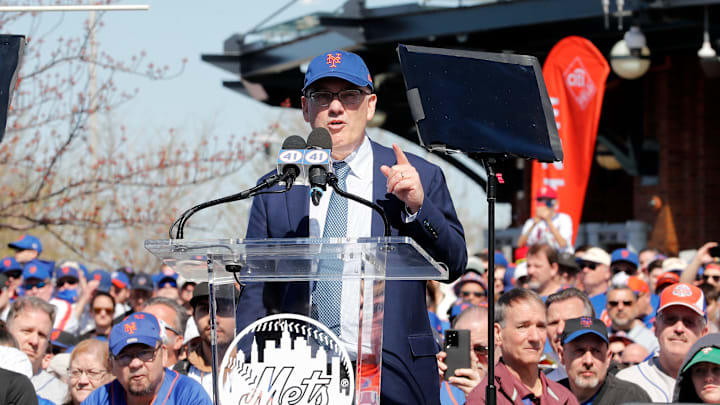A 99-day lockout seems incomprehensible for any business or company. But that is exactly what Major League Baseball went through at this time last year, and the league has apparently not learned any lessons from it. New York Mets fans, however, got some good news about the next potential labor negotiations on Saturday from MLB Players Association Executive Director Tony Clark.
Clark spoke to the press on Saturday and said that the goal of the league is to institute a salary cap as part of the new Economic Reform Committee established by MLB Commissioner Rob Manfred, and that the players will never agree to one.
A salary cap would be devastating for the Steve Cohen-run Mets
The players got as good a deal as they possibly could have gotten from last year’s collective bargaining agreement, with increased minimum salaries starting at $700,000 and luxury tax thresholds that started at $230 million last year. Because of it, teams (that were willing to spend) gave insane amounts of money to players who were worth those dollars.
However, there were the select small market teams, like the Cincinnati Reds and Oakland A’s, which sold off their key players in trades in efforts to save money. And for those teams, it led to attendance decreases, fewer wins, and less revenue in 2022. And Reds and A’s fans are some of the most loyal in baseball and they know it is a predictable cycle and fans find it hard to identify players with those teams.
Meanwhile, teams like the Mets, who have spent lots of money on players, thanks to owner Steve Cohen, are in the World Series conversation. Under a salary cap, he would not be able to flex his financial might to benefit the Mets as a result. Cohen would absolutely vote against any collective bargaining agreement proposal in 2026-27. The Yankees, Dodgers, and other teams would also vote against such a proposal too.
Instead, Cohen’s commentary this winter about other teams refusing to spend money or trying to win better reflects reality, both in terms of the correlations of spending to playoff contention and spending and championships.
Indeed, the Mets had the highest payroll of any team in baseball last year, and it amounted to 101 wins, their most in a season since 1986, thanks to Max Scherzer headlining a slew of new additions that made a big difference last year.
This year, the Mets are spending even more, becoming the first team ever to eclipse a $300 million payroll.
There is a strong correlation between player investments and team success, as eight of the top 10 luxury tax payrolls in MLB last year made the playoffs, while the other four teams had to rely on young teams with strong farm systems to make it there. In theory, it should encourage the owners to spend on players.
So instead of a salary cap, Tony Clark and the MLBPA will fight for either a salary floor or a condition that would encourage teams to spend more in the next labor negotiations set to take place four years from now. It would burst the bubbles of owners that don’t want to be called out for their lack of spending.
Wouldn't be something if the Mets had dreams of spending like crazy dashed by the Wilpons and their meddling of baseball operations for years see it taken it away by owners that won't spend, causing the other owners to want a salary cap? It won't happen on Steve Cohen's watch or the players' watch, and that's good news for the Mets.
